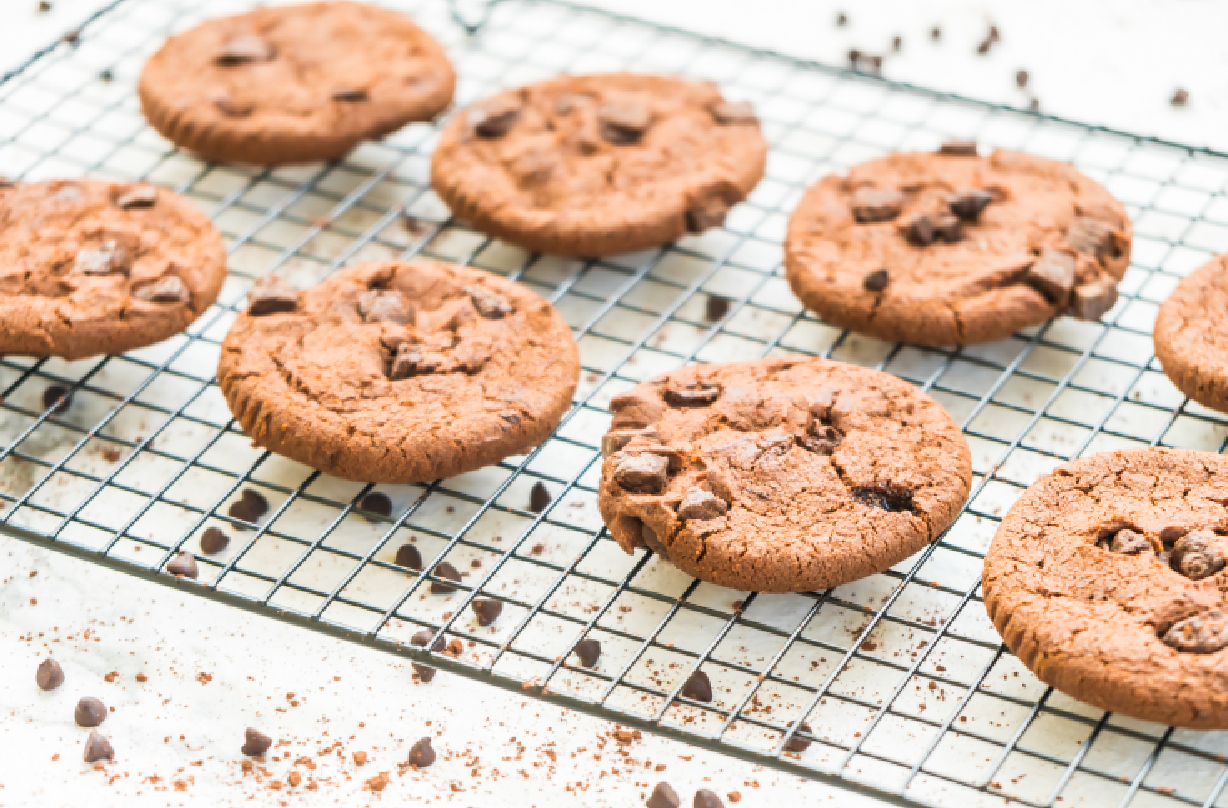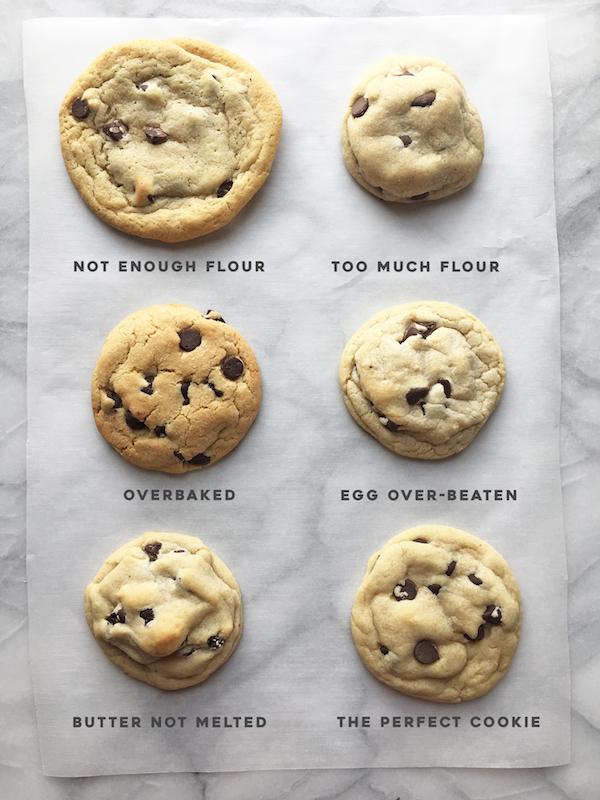What's wrong with my cookies? How to fix common problems when baking cookies
A simple guide to perfect cookies every time


So tasty to eat, but here is how to master baking the perfect cookie and how to fix them if they go wrong.
Easy chocolate chip cookies are super simple to whip up and the ideal sweet treat. However the ideal chocolate chip cookie completely depends on your preference.
For us the perfect cookie has to have a lovely soft centre and a high chocolate to dough ratio.
This image posted on Reddit by the website Pinch of Yum shows some of the common mistakes you can make when baking cookies, such as too much or not enough flour, over beaten eggs and overbaking.

Athough some Reddit users aren't convinced that 'the perfect cookie' in the picture (bottom right) is the one they would pick. Some thought the ‘not enough flour’ cookie looked more appealing. Comments included: 'Honestly the one with not enough flour looks pretty tasty to me'. Others preferred the look of the overbaked one.
To get to the bottom of the debate we have delved into this a bit further. If you've been left wondering 'what is wrong with my cookies?' after baking, read on to learn about the most common mistakes - and how you can fix them. We'll also look at how each ingredient can make or break the perfect cookie.
What's wrong with my cookies and how can i fix then?
Cookies are too hard
If the cookies were baked too long or the temperature of the oven was too high they will come out hard. Ovens can vary in temperature; if you are having trouble with yours buy an oven thermometer to check the temperature. And if in doubt try baking a test cookie to find the perfect texture. Remove the cookies from the oven while they are still soft, as they cool they will firm up.
GoodtoKnow Newsletter
Parenting advice, hot topics, best buys and family finance tips delivered straight to your inbox.
The cookies may also be hard if there is too much egg in the dough. It may also be that the egg was too large. A medium egg yolk and white together should weigh 60g.
Cookies are too tough
If the cookies came out dry and tough it could be that you over mixed the dough. When you mix flour with a liquid or fat the gluten begins developing. The more you mix it the more that the gluten develops. The gluten can cause the cookies to have a tough texture. Try not to overwork the cookie dough.
Cookies spread too much
If you find that your cookies are spreading chill the dough before baking them. They may also have too much sugar or butter in. So you could add a little more flour to even them out.
Cookies are too greasy
This is probably because the butter was too warm. If you find the cookies are greasy you should chill the dough prior to baking.
Cookies are too thick and look like cakes
The recipe probably suggests too much flour. Reduce the amount of flour and try again.
Cookies are too soggy
Make sure to cool the cooked cookies on a cooling rack so that the bottoms don’t go soggy. Once you remove the tray from the oven allow the cookies to sit for 1 before moving them. This will make them easier to move. Always let the cookies cool completely before putting away in a tin.
How can the the ingredients effect the final result?
Flour: Flour is an essential ingredient in most biscuits. When baking we would normally use plain or self-raising flour. In biscuits we favour plain over self-raising as self-raising flour can cause your cookie to puff up too much. Adding an additional raising agent will give you more control as to how much your cookies rise.
Eggs: Always use the best eggs you can. From our experience organic or free-range always taste better as well as being much fairer on the chickens.
Butter: Always use the type of butter stated in the recipe, in baking this is usually unsalted. Depending on the bake depends on the temperature that your butter should be: If you are creaming the butter with the sugar then use room temp butter. However if you are using a rubbing in method, such as when making shortbread, use fridge cold butter.
Sugar: Caster or soft sugars works best in bakes. Less fine sugars, such as granulated sugar, don’t always melt fully and can leave a crunchy texture. Soft brown sugar is great for adding a lovely fudgy texture to cookies. Icing sugar is really best reserved for icing or very fine biscuits that are made using melted butter. If you are creaming butter and sugar together then the sugar helps to aerate the butter. As the particles in icing sugar are finer they are less effective in doing this.
Chocolate: It goes without saying the better the chocolate you put into the cookie the better it will taste. So pick a chocolate that you love and cut it into chunks rather an using chocolate chips. Often the chocolate chips you can buy are made using sweet cheap chocolate.
Baking powder: A friend of ours was an amazing cook, but when it came to baking cakes they were always a flop. She was following the recipe precisely so she couldn’t work out what was going wrong. That was until she realised that the baking powder that she was using was well past the use by date. To test baking powder add a little to hot water. If it fizzes it’s good to use.

Rose Fooks is Deputy Food Editor at Future Publishing, creating recipes, reviewing products and writing food features for a range of lifestyle and home titles including GoodTo and Woman&Home. Before joining the team, Rose obtained a Diplome de Patisserie and Culinary Management at London’s Le Cordon Bleu. Going on to work in professional kitchens at The Delaunay and Zedel.